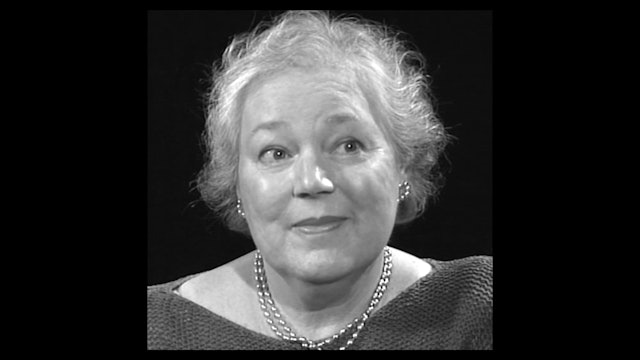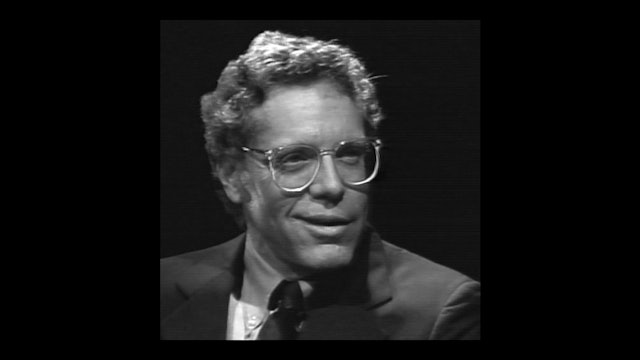-
Young, Shinzen - Overcoming Compulsive Behavior
According to Buddhist philosophy, compulsive and addictive behavior is common to all "normal" individuals. Shinzen Young is a Buddhist monk and director of the Community Meditation Center of Los Angeles. Through meditation, says Young, one learns to recognize the root cause of addiction as a lack...
-
Zilbergeld, Bernie - Mind Power
People who are motivated to transform and improve their lives can do so effectively by harnassing the power of their own minds. The late Bernie Zilbergeld, Ph.D., clinical psychologist and author of Mind Power, suggests a number of techniques -- among them learning to monitor and change negative ...
-
Zilbergeld, Bernie - Putting Psychtherapy on the Couch
Psychotherapy, says Bernie Zilbergeld, Ph.D., has been oversold and overused. Research suggests that therapy is actually of limited value. The late author of The Shrinking of America and Mind Power points out that individuals seeking personal transformation must be motivated to work hard and make...
-
McKenna, Terence - The Human Future
THE HUMAN FUTURE: Human survival requires that we become aware of our responsibility for the future. McKenna proposes four key elements of a future mandala: feminism, space exploration, cybernetics and hallucinogens.
The late Terence McKenna was co-author of The Invisible Landscape: Mind, Halluc...
-
McKenna, Terence - Hallucinogens and Culture
Hallucinogenic substances have been instrumental in the foundation of many aspects of our cultural heritage. In this challenging program, McKenna suggests ways in which hallucinogenic plants have been associated with spiritual traditions in ancient India, in the Amazon and in medieval Europe.
Th...
-
McKenna, Terence - Time and the I Ching
TIME AND THE I CHING: Here he examines Carl Jung's notion of synchronicity, or meaningful coincidence, as it applies to the Chinese I Ching. He proposes that the 64 hexagrams actually contain a specific mathematical structure which models both time itself and the human mind. This common structure...
-
Yalom, Irvin - The Art of Psychotherapy
Psychiatrist Irvin Yalom suggests that symptoms initially presented in therapy often serve to mask deeper, existential fears.
Irvin Yalom, M.D., is professor of psychiatry at Stanford University and author of numerous books on psychotherapy including Existential Psychotherapy and Love's Executio...
-
Yalom, Irvin - When Nietschze Wept
Irvin D. Yalom, M.D., a professor of psychiatry at Stanford University, is author of the novel, When Nietzsche Wept. Yalom describes his novel as highlighting the existential issues of human consciousness which are the basis of his own therapeutic approach. The soul-searching, self-examination of...
-
Tweedie, Irina - The Sufi Path
The Sufis are inheritors of a tradition which has influenced many world religions. Their work, which involves dreams, altered states of consciousness and teaching stories, is to further the evolution of humanity by offering deep intuitive training to select individuals. The late Mrs. Irina Tweedi...
-
Tweedie, Irina - Spiritual Training
The late Irina Tweedie is the author of Daughter of Fire, a diary of her intensive spiritual training in India with a Hindu Sufi master. In this moving and personal interview, Mrs. Tweedie, who was a Sufi teacher in London, describes the bliss, peace and love--and the despair, hatred and loneline...
-
Garfield, Patricia - The Healing Power of Dreams
Patricia Garfield is author of Creative Dreaming, Pathway to Ecstasy, Your Child's Dreams, Women's Bodies - Women's Dreams and The Healing Power of Dreams. Here she discusses sleep temples of the ancient world in which dreams were incubated for their healing potentials. Using examples from her ...
-
Beebe, John - Integrity in Depth
John Beebe, a Jungian analyst and author of Integrity in Depth, suggests that integrity is related to the integration of the personality, particularly the shadow side. In this sense integrity involves the reconciliation of opposing tendencies within oneself.













